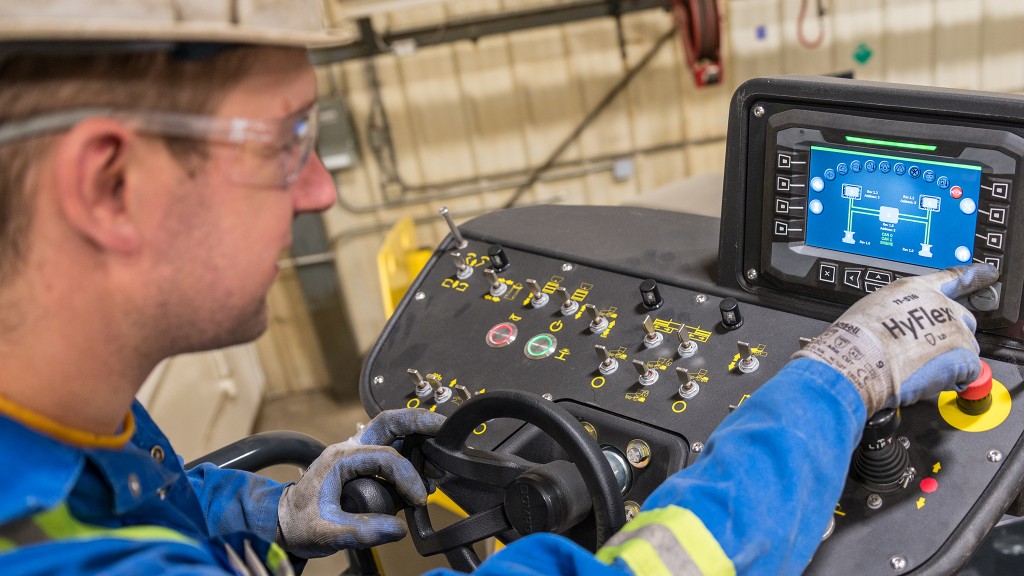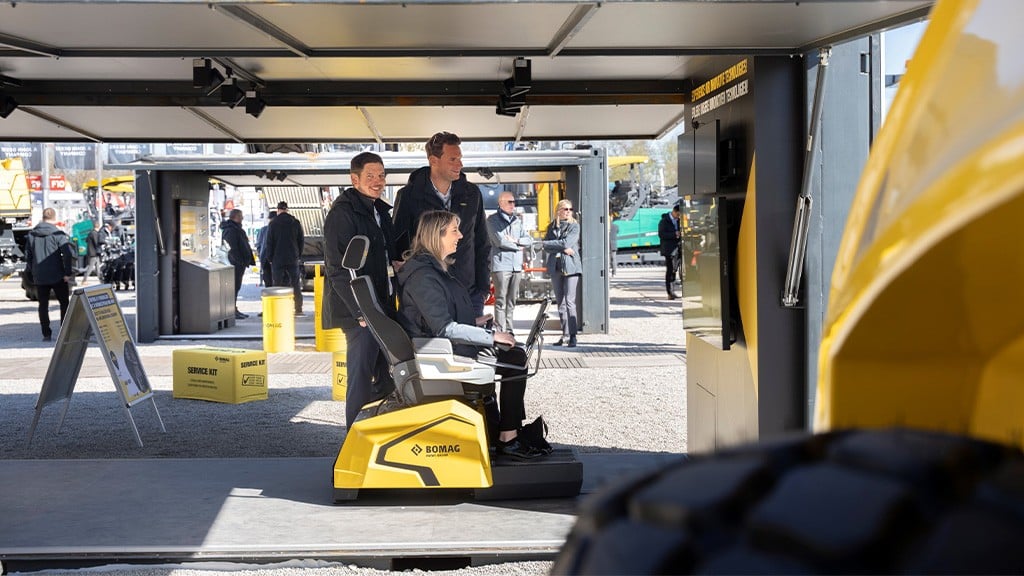
Asphalt paving season is coming soon, and it's time for contractors to think about preparing their equipment to hit the job site. What are the best ways to prepare asphalt paving equipment for the busy season? Heavy Equipment Guide spoke with Ray Tremblay, SMS equipment manager, Road Construction Tech Support, about how paving companies can get the season off to a good start.
Lee Toop: What is the best way for contractors to think about getting ready for paving season? What should they keep in mind when they're coming into that busy period?
Ray Tremblay: Owners should do a proper inspection to get ready for the season, then do any needed repairs and other preparation so the machine is in good operating condition. That way, they don't have to touch it for the three or four months of the paving season. If they have a really good inspection report and maintenance program; go through the sprockets, wear items and all of those points; clean and make sure everything is up to speed with the engine, final drives and other components, they should have a trouble-free season.
LT: What are the key points that paving companies should look at when they're prepping for the season?
RT: Usually, it's wear items. Especially with pavers, you need to look at your auger flights, your auger bearings, the supports, the screed plate, the screed, your floor plates and your slat chains.
Anything that moves material is your main concern. You want your auger motors, gearboxes, the drive chains, you want all that at 100 percent so you don't have to do anything mid-season when you get into higher production. Say you're on a high-production job, and all of a sudden you break down. Now, you need to get that paver out of there. You've created an interruption on your mat. Plus, you have trucks and the plant - everything's all aligned.
LT: What are the areas that the contractor should be looking at in their shop and what should they come to you guys for?
RT: If they have a mechanical department then they'll get training and their guys will go through it. When it gets to more modern machines with newer technology and electronics in the engines or machine software, then you're more reliant on the OEM and the dealer. If it's older equipment, they probably have lots of experience and knowledge in house. For a small paving company that can't afford to hire a mechanic 100 percent, then they will reach out to the dealer. It all depends on how big a company they are, how many pieces of equipment they have, and so forth. If they have just one machine, they probably won't have a mechanic unless it's an owner-operator who does the work themselves.
LT: What are the biggest issues that paving companies come to the dealer for in terms of pre-season preparation?
RT: It can be large repairs. If it's a new machine, anything warrantable, they'll use the dealer because that's covered. . .if the company gets extended warranty or long-term, four years or five years, then they'll utilize the dealer. That way they protect themselves if anything technical that goes wrong with final drives, the engine or hydraulics that are covered under special warranty. There's different types of warranty plans you can get.
Some customers feel they can look after themselves. So, you just reach out. And what we do is, come the fall, our product support guys will ask if they want an inspection. And then we'll provide recommendations on what's worn and what should be repaired.
LT: What areas do owners sometimes miss in their service that should be considered as they're coming into the season?
RT: I've seen where a customer will work late into October, November, maybe into December, depending where they're at, and then the season will be over. They've had a hard season, they've beaten the weather, and then they'll just park the machines and not do anything with them. They'll wait until the spring, and then they'll bring their crews in and try to go through the machines at that time.
What could happen is, if there were any problems that haven't been documented or addressed at the end of the season, they could get missed. As they start paving, they have to go in and address the problems.
LT: It's important to consider that post-season wrap-up then?
RT: If they develop a program and a policy where they do everything post-season, it's better because then the machine is parked. But it all depends on how good a season they had, what their finances are like. Maybe the owner has, every year, left it for the spring and that's just how he operates.
If you do a good inspection, then they have the report for the spring, they can refer to it and go on that way – and it gives them time to bring parts in on a standard stock order. Some customers do a winter program where they will bring a machine in and work at that time, so it's not a rush.
LT: How much is telematics and emerging technologies around service changing and improving these pre-season maintenance plans?
RT: A lot of the bigger companies are utilizing it because that way they can manage where the machines are. They also have operating hours, so they can see when a machine's due for scheduled service and address that. They can manage their equipment a lot better; they're not running double services or missing a service the whole season.
LT: So, you have the machine prepped and ready to go. What should contractors and their operators be watching for to make sure they stay in good condition through the season?
RT: The biggest thing is training operators to understand the machine, understand the operation of the machine. A lot of customers, their people are seasonal, they stay with them. So, they have a good idea. But with new product lines, it's always good to get training – there are always things that change. And you always bring new people in. Over the winter, people can get complacent and then you have to start again. With the new season, you need to start thinking about the product and the application. So, yeah, training in operation to understand the machine helps everyone get along and makes the job go a lot smoother. It's better for the operators, for the supervisors, the owners, everybody – even for the machine, because the machine isn't abused and it's run more correctly.



